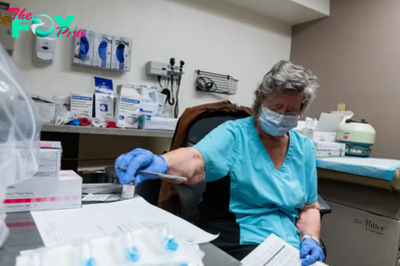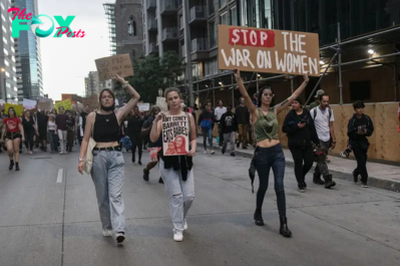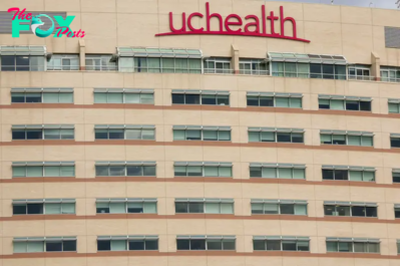Health
Colorado’s growing approach to solving chronic homelessness: Permanent housing with few rules
When Solid Ground Apartments opens next week in Lakewood, it comes with proof of concept — giving people who are homeless a place to live, no strings attached, not only changes their lives but can save public money.
The new 40-unit complex is the first permanent supportive housing project in Colorado to copy Sanderson Apartments, which welcomed its first residents in 2017 as a national model in solving homelessness.
Both projects are run by community mental Health centers and both invite people who are living outside — the ones burning through taxpayer dollars as they cycle in and out of jail, detox and hospital emergency rooms — to move directly into their own apartments.
A third, similar project is also in the works, set to open next spring. At the same time Jefferson Center for Mental Health prepares to welcome its first residents at Solid Ground, Denver’s mental health center, WellPower, announced it is breaking ground on a 60-unit project called Sheridan on 10th.
All the construction, funded largely by tax credits and grants, would make it seem that Colorado has turned a corner in how it gets its chronically homeless population off the streets. Have the years since the COVID pandemic, when homelessness was more visible and entrenched than ever, convinced people that government-funded, permanent housing is the solution?
“I would love to say yes to that,” said Kiara Kuenzler, president and CEO of Jefferson Center. But “I think there is still a lot of stigma, and sometimes the more visible folks without houses are in communities, the more that people can stigmatize and want to push away what is uncomfortable.”
Bringing neighbors and the public in general around to the idea is “requiring a lot more dialogue — even more dialogue now than when homelessness was less visible.”
Kuenzler often tells skeptics that people without housing are going to live in their neighborhoods anyway, so “whether they are in a tent or whether they are in an apartment with wraparound services really makes a difference.”
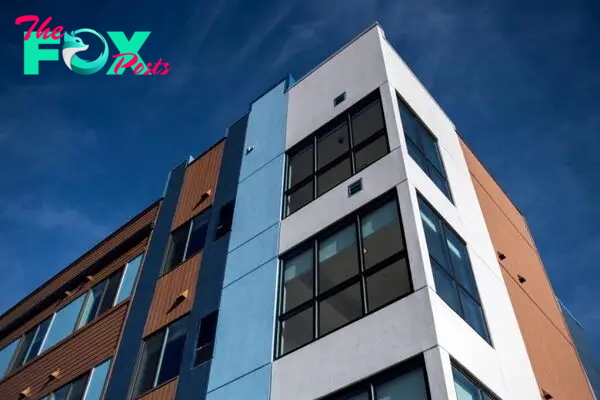
Solid Ground, as well as WellPower’s Sheridan on 10th, will have on-site mental health services, peer support specialists and case managers, all of which are available to residents but not required. Residents don’t have to have jobs and it’s OK if they have criminal records or are not sober or in recovery. Still, the “low-barrier” apartments have some rules — residents cannot cook illegal drugs on site, or start a fire to keep warm in the courtyard, or commit violent acts.
It’s not a step-up program intended to push people toward jobs and finding their own, independent apartments. The housing is available to them for as long as they want to stay.
“It means that people have a permanent home from the first day they move in,” Kuenzler said.
Designed for people used to sleeping outdoors
Both new buildings are designed for people who have grown used to sleeping outdoors, which means light-filled rooms, an abundance of plants, no dark hallways and plenty of outdoor space. At Solid Ground, residents can bring their dogs, and there is a community barbecue for people to use. The laundry room was strategically placed in a corner of the building so it has two walls with windows looking outside, creating a bright, airy feeling uncommon for a typical laundromat.
“We have heard time and again that laundry rooms are triggering areas,” said Taylor Clepper, Jefferson Center’s director of navigation and housing services and project manager for the complex. People who are homeless have been assaulted in laundromats, gotten into altercations about machines and belongings, and had their tent, cart or other belongings stolen outside while they were doing laundry.
The entire building is structured to make people feel comfortable and safe, in the hope that it will lead to recovery from mental health issues and substance use.
“There is a kind of dichotomy on the streets,” Clepper said. “There is safety that is created. There are groups, communities that form and really create safety for individuals and that’s where they feel safest. Conversely, there is a lot of trauma that happens on the streets. It’s a both-and situation, and we are trying to meet people where they are.”
“Trauma-informed” furniture was arriving at Sold Ground this week, including beds made for people accustomed to sleeping on the hard ground. Instead of wooden slats under the mattress, the beds have a wooden platform so people can remove the mattress and sleep directly on the wood.
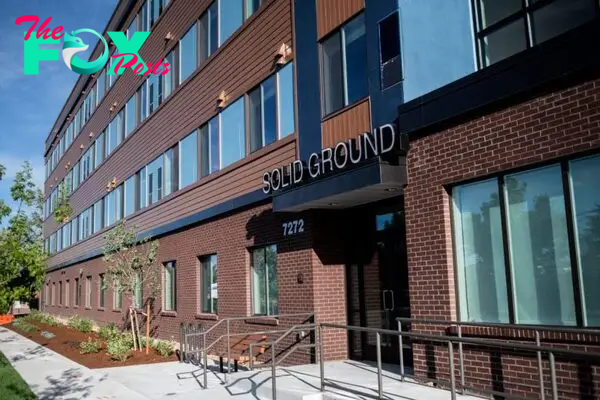
Sleeping inside “feels very different than not having four walls around you or feeling the sun come up over your head,” Clepper said. The couches are narrow by design, to encourage people to try sleeping in their beds. Sleeping in the courtyard will not be encouraged, but it isn’t a deal-breaker. Overnight guests are allowed, but with restrictions, because it’s typically not the resident but the resident’s friends that lead to evictions, Clepper said.
Case managers will be on site, 24-7.
“We are going to work on housing first and then we will work on the rest,” Clepper said. “The goal is not to kick people out if there is a safe way to work with you. This is low-barrier housing and the intention is to keep them housed.”
-

 Health20h ago
Health20h agoThe Surprising Benefits of Talking Out Loud to Yourself
-

 Health22h ago
Health22h agoDoctor’s bills often come with sticker shock for patients − but health insurance could be reinvented to provide costs upfront
-

 Health1d ago
Health1d agoWhat an HPV Diagnosis Really Means
-

 Health1d ago
Health1d agoThere’s an E. Coli Outbreak in Organic Carrots
-

 Health2d ago
Health2d agoCOVID-19’s Surprising Effect on Cancer
-

 Health3d ago
Health3d agoWhat to Know About How Lupus Affects Weight
-

 Health6d ago
Health6d agoPeople Aren’t Sure About Having Kids. She Helps Them Decide
-

 Health6d ago
Health6d agoFYI: People Don’t Like When You Abbreviate Texts




